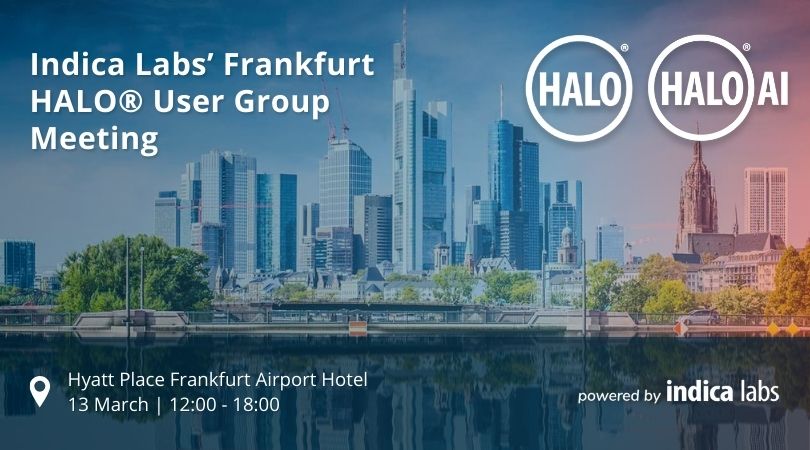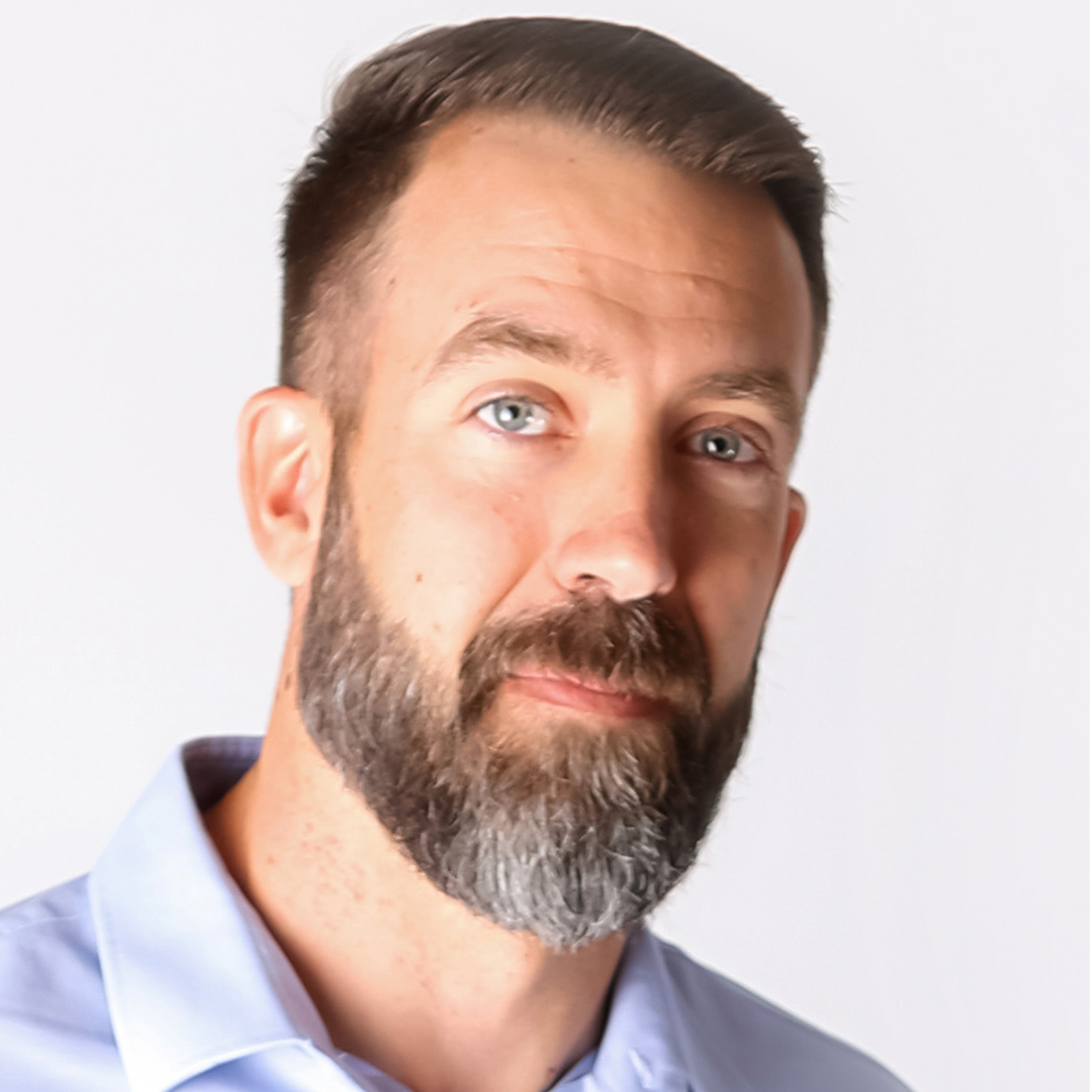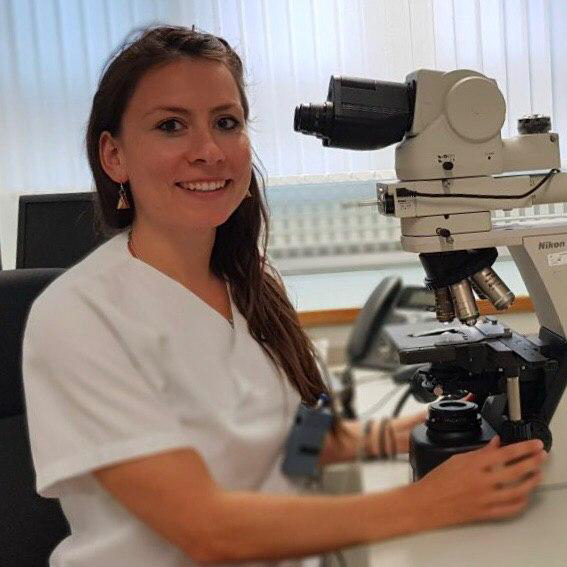
Indica Labs’ Frankfurt HALO® User Group Meeting
Date: 13 March 2024
Time: 12:00 – 18:00
Location: Hyatt Place Frankfurt Airport Hotel
Learn how Indica Labs’ customers employ HALO products for life science, translational, and clinical use cases.
Summary
Indica Labs is pleased to announce our Frankfurt HALO® User Group Meeting at Hyatt Place Frankfurt Airport Hotel on 13 March from 12:00 – 18:00. A lunch buffet will be provided to all pre-registered attendees at 12:00.
Our program this year features six outstanding guest speakers representing leading universities and pharma companies who will discuss how they use HALO products and services from Indica Labs to achieve their objectives spanning life science research, drug development, translational research, and diagnostics. In addition to our guest speakers, Indica Labs will present the latest features available in our 4.0 release of HALO, HALO AI, and HALO Link, and an overview of our HALO Clinical AI pipeline.
We welcome anyone who is interested in learning more about Indica Labs’ AI-powered digital pathology solutions to register for the meeting. You do not need to be a current Indica Labs customer to attend.
Presenters
Agenda
Time | Topic | Presenters | |
|---|---|---|---|
12:00 – 13:00 | Check-in/Lunch | ||
13:00 – 13:10 | Welcome Address | VP, Life Science Applications Global Indica Labs | |
13:10 – 13:35 | HALO® 4.0 for Faster and AI-Powered Workflows | Senior Field Applications Scientist Indica Labs
Abstract Another software release is around the corner! The next version of Indica Labs’ HALO® life science-focused products include quality-of-life improvements and the incorporation of artificial intelligence into HALO workflows. See a live demo of our new GPU-accelerated viewer, chaining HALO AI classifiers pipeline to streamline analysis workflows, and the customization of analysis outputs. We will also look at some of our pretrained HALO AI models now available, and our newest AI network FL membrane segmentation. Biography Ghislaine Lioux has a background in molecular biology and heart development. She was awarded a Marie Curie Fellowship and obtained her PhD from the Spanish National Institute of Cardiovascular Research in Madrid. Ghislaine brings with her 10 years of experience in the immunostaining and imaging world from various institutes in Spain, France, UK, and USA. As a Senior Field Application Scientist at Indica Labs, Ghislaine works daily with scientists from Pharmaceutical, Healthcare, and Research Organizations worldwide and provides tailored sales and application support to the customers. | |
13:35 – 14:00 | HALO AI in Research: Our Experiences and Insights | Professor of Digital Pathology University of Bern Surgical Pathologist University of Bern ICT Service Manager University of Bern
Abstract In addition to clinical work, the Institute of Tissue Medicine and Pathology promotes excellence in research and teaching. Part of this mission involves the use of computational pathology and image analysis tools, of which HALO AI plays an important role, supporting more than a dozen on-going projects by medical students, researchers, and pathologists. We shortly present the organization of our digital pathology hub for research, then showcase one important and clinically relevant project for cytological samples supported by HALO AI, and finally discuss some of the lessons learned over the last few years working with the software and with Indica Labs support. Biography Inti Zlobec is Professor of Digital Pathology at the Institute of Tissue Medicine and Pathology, University of Bern in Switzerland. Originally from Montreal, Canada she obtained her PhD in Experimental Pathology from McGill University, before completing a post-doctoral fellowship at the University Hospital Basel. There, building upon her background in histopathology, tissue-based research methods and biostatistics, her research focused on discovering and validating translational biomarkers and biostatistical modelling of clinical outcomes for colorectal cancer patients. In 2011, Inti Zlobec joined the Institute of Tissue Medicine and Pathology in Bern, where she established the Translational Research Unit, a core facility for tissue “visualization” methods and image analysis, and later modernized and led the Tissue Biobank Bern until 2022. Now, she leads an interdisciplinary research group of scientists and students focusing on tissue imaging. The aims of the research group are on the one hand, to build tools for diagnostic clinical use and on the other to gain novel biological insights into colorectal cancers by using the latest spatial (transcriptomic and protein) tissue visualization techniques and computational methods. Inti Zlobec is Chair of the European Society of Pathology Working Group for Digital & Computational Pathology, Founder and President of the Swiss Digital Pathology Consortium (SDiPath), Executive Team member of the Center for Artificial Intelligence in Medicine (CAIM) of the University of Bern and Board member for the Bern Center for Precision Medicine (BCPM). Website: www.digitalpathologybern.com/
Dr. Tereza Losmanová is a surgical pathologist with specializations in pulmonary and cardiovascular pathology, urinary pathology, and, more recently, cytology, having honed her expertise during her residency and subsequent tenure as a staff pathologist at the University of Bern in Switzerland. While her research initially centered on Non-Small Cell Lung Cancer (NSCLC), over the years, her interest has transitioned to the promising domains of digital pathology and cytology.
Stefan Reinhard, a data analyst and manager, originally developed his expertise in computer science and image analysis. With a background in remote sensing, he seamlessly transitioned into the field of digital pathology with over five years working to develop digital pathology at the University of Bern in Switzerland. Beyond his data science skills, Stefan is deeply committed to process integration and automation, emphasizing the importance of maintaining data privacy, consistency, and accessibility. His translational focus is on bridging the gap between artificial intelligence, including research-based AI, and enhancing a collaborative and efficient environment for pathologists. | |
14:00 – 14:15 | Coffee Break & Networking | ||
14:15 - 14:40 | Establishment of a ‘High- Throughput’ Multiplex Immunofluorescence-Based Histopathology Workflow to Study Immunotherapy-Induced Damage of Healthy and Tumor Organoids | Marius Harter, MSc, PhD Student Institute of Human Biology Roche
Abstract Cancer immunotherapy has provided patients with hope for a durable cure. However, it is currently effective in a restricted set of individuals and tumor types, owing, in part, to toxicities that are difficult to foresee at the preclinical stage. We developed an organoid-based platform to predict and dissect on-target off-tumor intestinal toxicities of T cell bispecific antibodies (TCBs). We show that patient-derived healthy intestinal organoids supplemented with immune cells can capture clinical toxicities of CEA- and EpCAM-targeted TCBs not predicted by conventional preclinical models. We embedded organoids-immune co-culture arrays and applied multiplexed immunofluorescent staining to analyze the mechanisms of T cell-mediated damage of both healthy and neoplastic epithelia at a single-cell resolution. In accordance with clinical observations, EpCAM TCBs caused healthy organoid apoptosis, associated with T cell activation, cytokine release, recruitment and intraepithelial infiltration. Despite expressing higher levels of TCB targets, tumor organoids were more resistant to damage, likely owing to reduced efficiency of T cell infiltration within the epithelium. Biography In his PhD, Marius is dedicated to advancing the field of Inflammatory Bowel Disease (IBD) research by developing a next-generation in vitro model that more accurately reflects the complex nature of the disease. Building upon his prior experience, where he explored organoid-immune co-cultures for the safety and efficacy assessment of cancer immune-therapeutics, Marius now aims to integrate key patient-relevant cellular compartments into his IBD model. His goal is to create a recapitulative microenvironment that encompasses the multifactorial etiology of IBD, thereby providing a more robust platform for studying the disease. | |
14:40 –15:05 | HALO Link: Promoting Discovery Through Collaboration | Associate Product Manager, HALO Link Indica Labs
Abstract HALO Link accelerates research timelines and fosters collaboration through seamless data sharing. The platform’s user-friendly interface facilitates easy navigation and accessibility allowing pathologists to complete detailed slide viewing, annotation, analysis, and review workflows. The upcoming 4.0 release includes additional features and capabilities such as Interactive Markups to further propel research. For organizations in need of Good Laboratory Practice support, the Compliance add-on includes system wide audit trails and reason for change capture. Join us and discover how you can leverage HALO Link to streamline your pathology workflows. Biography Kat Latimer earned a BS in Biochemistry from the University of New Mexico in 2018 and has since continued her education at Colorado State University studying for a master’s in Biomedical Engineering. During her undergraduate studies, Kat participated in several research opportunities including investigating the role of cellular adhesion proteins in HPV oncogene expression. After graduation, she became a Test and Evaluation Engineer at Booz Allen Hamilton. Wishing to refocus her career on biomedical sciences, she joined Indica Labs in 2020 as a Software Quality Assurance Analyst. In 2021 she transitioned to the Product Management team and has since been promoted to the HALO Link Associate Product Manager role where she works closely with the software developers creating new features to improve the user experience. | |
15:05 – 15:30 | From Vision to Advanced Digital Integration | Head of Pathology Informatics, Junior Researcher at the Faculty of Medicine Vilnius University Abstract Digital processes at pathology center started in 1993 with an in-house Laboratory Information System (LIS), developed by Arvydas Laurinavičius. This initial system laid the groundwork for a more advanced LIS in 2006, significantly enhancing data and workflow management. The acquisition of our first microscopy scanner in 2010 marked our entry into high-resolution digital imaging, further enhanced by implementing HALO for research in 2014. We explored unique advantages of hexagonal tiling-based analytics, eventually integrated with HALO image analysis outputs. This enabled us to automate and enhance our research tools for assessment of intratumoral heterogeneity and tumor-host immune interactions.
In 2022, we adopted HALO AP for image management and further integration with clinical environment. Our pathologists use HALO AP interfaces along with our LIS for remote diagnosis. We are in process of implementing our in-house algorithms developed in HALO for kidney biopsy assessment and breast cancer immunohistochemistry enumeration. We also look forward to implementing clinically validated third party tools. From the first step 30 years ago, with strong vision we move to full digital transformation of our services. Biography Renaldas Augulis started his academic journey at Vilnius University with a Bachelor's in Bioinformatics (2010-2014) and a Master's in Genetics (2017-2019). Currently, he is pursuing a Ph.D. in Medicine (2022-) at the same institution, focusing on kidney histology analytics. Renaldas' professional career in National Center of Pathology started a decade ago as a laboratory technician. In a couple of years his role evolved to bioinformatician, where he applied his skills for research, alongside exploring image analytics and deep learning. In 2021, he became the Head of the Pathology Informatics. | |
15:30 – 15:45 | Coffee Break & Networking | ||
15:45 - 16:10 | Advanced Tumor Cell Scoring Algorithms for HALO Software | Scientific Director and Head of Biomarker Data Analytics & Digital Pathology Merck Healthcare KGaA
Abstract Tumor cell (TC) membrane markers are frequently used as predictive biomarkers in selection of cancer patients for drugs directed at membrane bound targets, like antibody-drug conjugates (ADCs).
However, scoring of TC membrane biomarkers can be challenging, leading to inconsistency, and limiting the value as predictive biomarker. Hence, the need for a more robust, reliable, and quantitative membrane detection approach.
Here, we report on our collaboration with the Indica Labs Pharma Services team to develop novel algorithms for HALO with the goal to provide advanced quantification of TC membrane-based immunohistochemistry (IHC) biomarkers. Biography Thomas Mrowiec is an expert in Digital Pathology experienced in leading projects for tissue based biomarker development. He graduated from the University Heidelberg in molecular biology and specialized on digital image analysis to bridge biomarker strategies, histopathology and digital quantification. His work has been predominantly applied in the field of immuno-oncology, e.g., digital scoring methods like the Immunoscore®. In his current role as Scientific Director and Head of Biomarker Data Analytics and Digital Pathology at Merck Healthcare KGaA, Thomas is leading initiatives to establish Digital Pathology as advanced tool for biomarker research, assay development, clinical development and Precision Medicine. Thomas holds a PhD in Molecular Biology and an engineer diploma in Biotechnology. | |
16:10 – 16:30 | Development and Validation of HALO Clinical AI Solutions | Senior Principal Scientist AI Diagnostics Indica Labs Abstract Peter will cover how and why Indica Labs collaborate with external industrial, clinical, and academic partners to develop their commercial AI solutions. He will give an overview of the development and validation of Indica Labs’ current HALO Clinical AI solutions and those designed for life science. He will further discuss the roadmap for future releases of their commercial AI product portfolio for 2024. Biography Peter Caie worked for 9 years as a Senior Scientist at AstraZeneca before completing his PhD from the University of Edinburgh in Cancer Pathology. He went on to run the Quantitative and Digital Pathology (QUAD) Lab at the University of St Andrews where his research focused on artificial intelligence, cancer prognosis, and diagnosis in the field of digital and molecular pathology. Currently, Dr. Caie is a Senior Principal Scientist at Indica Labs where he manages the AI Diagnostics group who develop commercial AI products designed for deployment in both the clinical and life science fields. | |
16:30 – 16:55 | Driving the Vision of “Tissue Medicine” with Indica Labs | Professor of Digital Pathology University of Bern Surgical Pathologist University of Bern ICT Service Manager University of Bern Abstract At the University of Bern, the slogan “Tissue Medicine is the New Pathology” describes our vision of conducting holistic digital pathology-driven patient-oriented diagnostics and research. To further this vision, we have selected HALO AP as a driver of this change. In this short presentation, we will define our Tissue Medicine concept and describe where we stand now with our technical integration of HALO AP into our routine diagnostics. Moreover, as partners with Indica Labs in the generation of clinical algorithms, we will highlight our experience co-developing the PD-L1 algorithm for lung cancer. Biography Inti Zlobec is Professor of Digital Pathology at the Institute of Tissue Medicine and Pathology, University of Bern in Switzerland. Originally from Montreal, Canada she obtained her PhD in Experimental Pathology from McGill University, before completing a post-doctoral fellowship at the University Hospital Basel. There, building upon her background in histopathology, tissue-based research methods and biostatistics, her research focused on discovering and validating translational biomarkers and biostatistical modelling of clinical outcomes for colorectal cancer patients. In 2011, Inti Zlobec joined the Institute of Tissue Medicine and Pathology in Bern, where she established the Translational Research Unit, a core facility for tissue “visualization” methods and image analysis, and later modernized and led the Tissue Biobank Bern until 2022. Now, she leads an interdisciplinary research group of scientists and students focusing on tissue imaging. The aims of the research group are on the one hand, to build tools for diagnostic clinical use and on the other to gain novel biological insights into colorectal cancers by using the latest spatial (transcriptomic and protein) tissue visualization techniques and computational methods. Inti Zlobec is Chair of the European Society of Pathology Working Group for Digital & Computational Pathology, Founder and President of the Swiss Digital Pathology Consortium (SDiPath), Executive Team member of the Center for Artificial Intelligence in Medicine (CAIM) of the University of Bern and Board member for the Bern Center for Precision Medicine (BCPM). Website: www.digitalpathologybern.com/
Stefan Reinhard, a data analyst and manager, originally developed his expertise in computer science and image analysis. With a background in remote sensing, he seamlessly transitioned into the field of digital pathology with over five years working to develop digital pathology at the University of Bern in Switzerland. Beyond his data science skills, Stefan is deeply committed to process integration and automation, emphasizing the importance of maintaining data privacy, consistency, and accessibility. His translational focus is on bridging the gap between artificial intelligence, including research-based AI, and enhancing a collaborative and efficient environment for pathologists. Dr. Tereza Losmanová is a surgical pathologist with specializations in pulmonary and cardiovascular pathology, urinary pathology, and, more recently, cytology, having honed her expertise during her residency and subsequent tenure as a staff pathologist at the University of Bern in Switzerland. While her research initially centered on Non-Small Cell Lung Cancer (NSCLC), over the years, her interest has transitioned to the promising domains of digital pathology and cytology. | |
16:55 – 17:00 | Closing Remarks | VP, Life Science Applications Global Indica Labs | |
17:00 – 18:00 | Drinks Reception |









